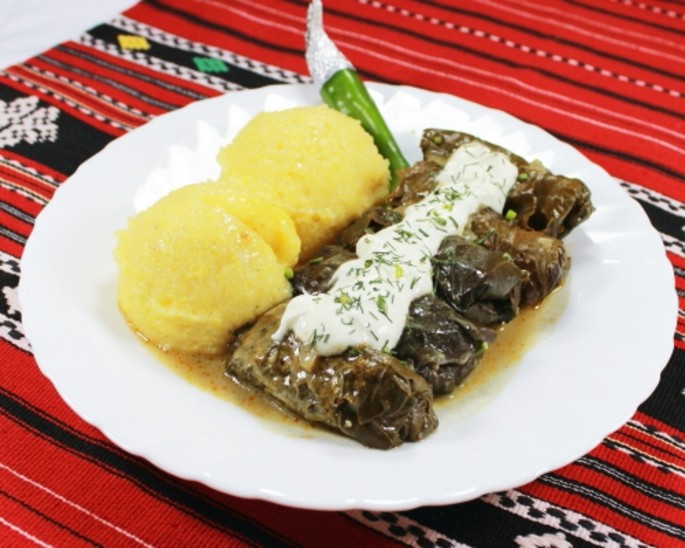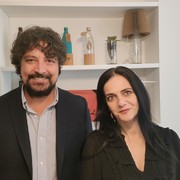In Romania, every self-respecting restaurant is always ready to promote the "Romanian traditional dish" called sărmăluţe cu mămăligă, to be more precise, are stuffed cabbage rolls or grape vine leaves stuffed and filled with minced beef and pork and served with cornmeal mush.
Actually, “sarma” is not a Romanian dish, because it has oriental and Turkish roots, it comes from the Turkish word "sarma". Even the Greeks had their sarma and they called it sarmalaki. This gastronomic term varies in time and space, depending on the type of the leaves used, the stuffing and the mode of preparation.
Among the different variations of saramale by local cuisines, during the time, was chosen a recipe sarma that was standardized and promoted to the rank of national dish, known and met in the section of "traditional Romanian dishes" and promoted at every opportunity.
It must be said that our "ancestral" sarmale exceeded the Turkish model through innovation relating to the stuffing (which may be of chicken, turkey, duck, goose, beef, pork, sheep, lamb, fish, cheese, etc.,) but also relating to the leaves that are used (cabbage leaves, sweet or sour, grape leaves, lime, horseradish, etc.).
In a sense, we have adapted the original recipe to our ways of preparing food because instead of ground beef, traditionally, the meat must be chopped with the ax. The use of the ax in the flesh cutting symbolizes a continuation of the initial bloody sacrifice of the animal.
A deviation of the basic recipe is the meatless sarma, or, sarmaua de post, which is stuffed with different grains and enriched with nuts, also called haluşte, and are eaten during Lent and Advent. But if the sarma is not a traditional Romanian dish it doesn’t mean there are no traditional Romanian dishes, on the contrary....
To understand the traditional Romanian cuisine, and especially the cuisine of Banat, we need to clarify certain general aspects of the local gastronomy. In the past, the Romanians way of feeding was based on the sacred aspect and there wasn’t even the slightest reference to the taste and health, something that in nowadays is totally lost.
What characterizes the traditional Romanian cuisine, in general, is the uniformity of the culinary sector, which tends toward extreme simplicity. It is needless to look for fine dishes in the traditional Romanian kitchen because the gastronomic diversity it is rather an aspect of modernity. New plates were introduced with a certain difficulty among the common people, and they aimed more to society’s upper class.
Common people usually “metabolized" with great reserves the news, especially in the culinary area, where there were not only religious implications, but also ritualistic. It was the church to establish the rules of the consumption of different foods in different periods of the year, with ritualistic implications or not, which gave birth to the forbidden foods during Lent or Advent.
From here results a real ideology of food that establishes a strong link between food and religion, between the sacred and the profane.
Bibliography:
1. Gheorghe Secheşan, Tradiţii şi obiceiuri culinare bănăţene, Ed. Eurostampa, Timişoara, 2012,
2. Ion Ghinoiu, Vârstele timpului, Ed.Meridiane, Bucureşti, 1998.
















